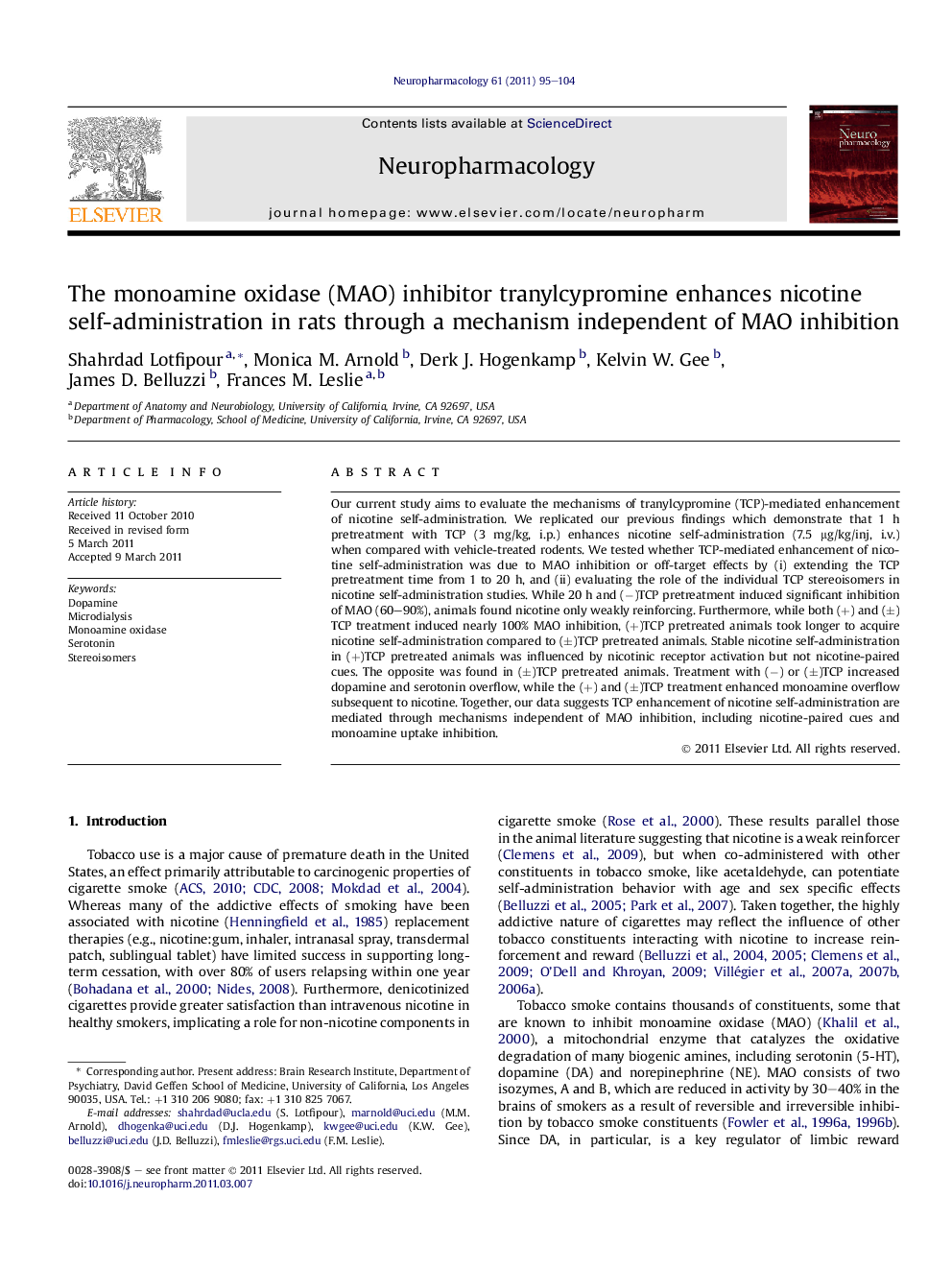| Article ID | Journal | Published Year | Pages | File Type |
|---|---|---|---|---|
| 2493635 | Neuropharmacology | 2011 | 10 Pages |
Our current study aims to evaluate the mechanisms of tranylcypromine (TCP)-mediated enhancement of nicotine self-administration. We replicated our previous findings which demonstrate that 1 h pretreatment with TCP (3 mg/kg, i.p.) enhances nicotine self-administration (7.5 μg/kg/inj, i.v.) when compared with vehicle-treated rodents. We tested whether TCP-mediated enhancement of nicotine self-administration was due to MAO inhibition or off-target effects by (i) extending the TCP pretreatment time from 1 to 20 h, and (ii) evaluating the role of the individual TCP stereoisomers in nicotine self-administration studies. While 20 h and (−)TCP pretreatment induced significant inhibition of MAO (60–90%), animals found nicotine only weakly reinforcing. Furthermore, while both (+) and (±)TCP treatment induced nearly 100% MAO inhibition, (+)TCP pretreated animals took longer to acquire nicotine self-administration compared to (±)TCP pretreated animals. Stable nicotine self-administration in (+)TCP pretreated animals was influenced by nicotinic receptor activation but not nicotine-paired cues. The opposite was found in (±)TCP pretreated animals. Treatment with (−) or (±)TCP increased dopamine and serotonin overflow, while the (+) and (±)TCP treatment enhanced monoamine overflow subsequent to nicotine. Together, our data suggests TCP enhancement of nicotine self-administration are mediated through mechanisms independent of MAO inhibition, including nicotine-paired cues and monoamine uptake inhibition.
► Mechanisms independent of MAO inhibition influence tranylcypromine (TCP)-enhancement of nicotine self-administration. ► Tranylcypromine isomers differentially increase nicotine self-administration. ► Nicotine-paired cues and monoamine uptake inhibition may underlie TCP-mediated enhancement of nicotine self-administration.
